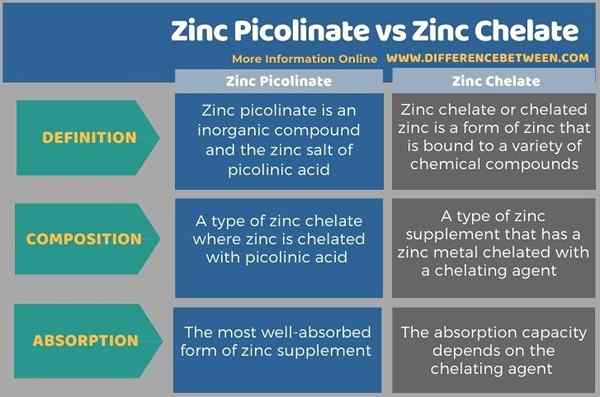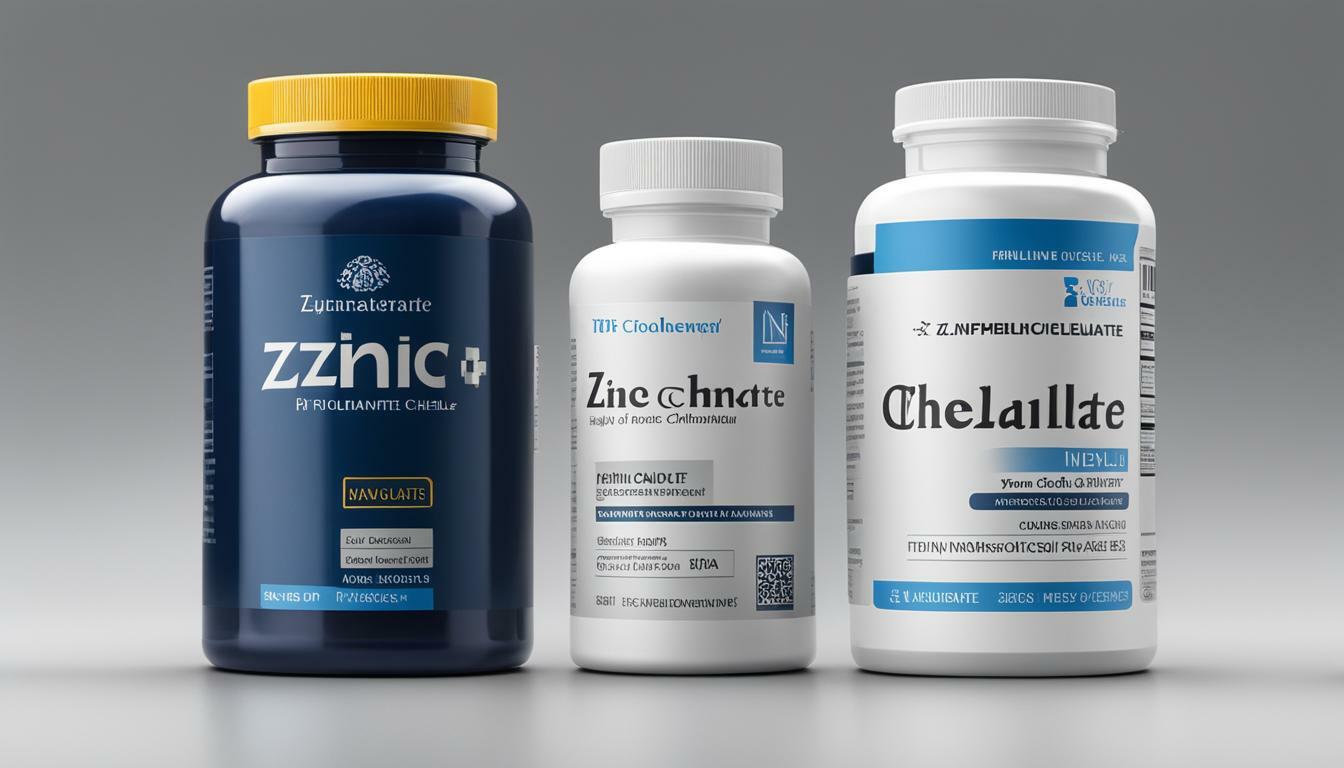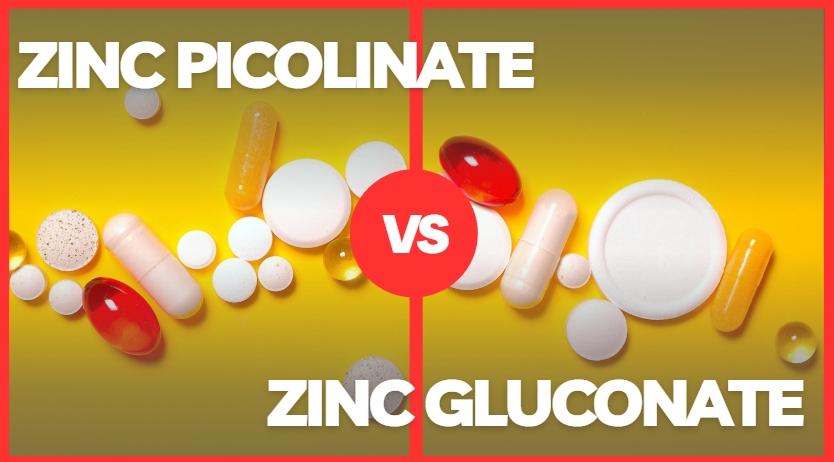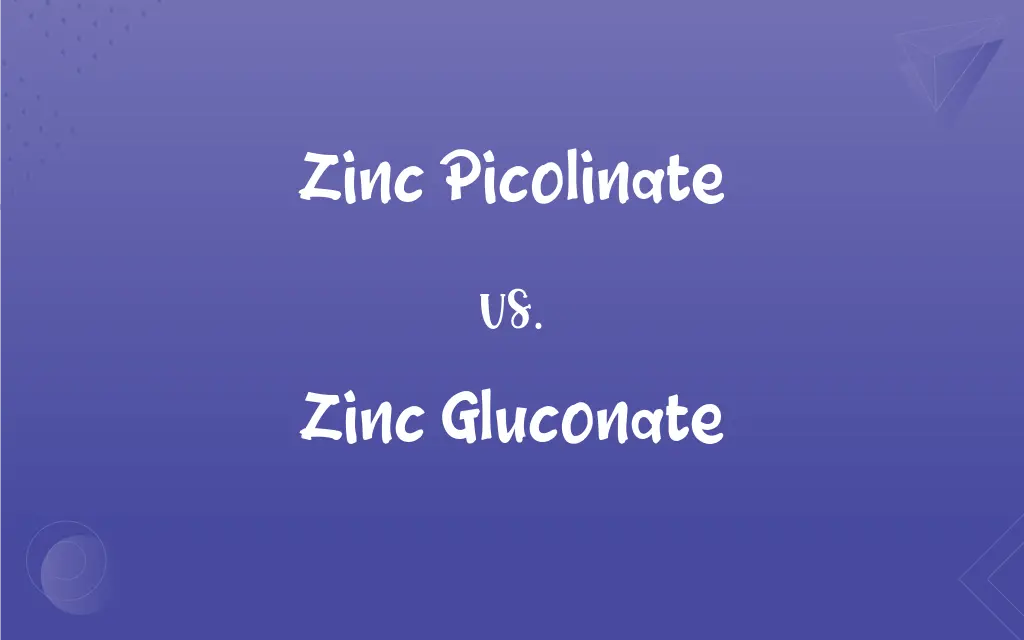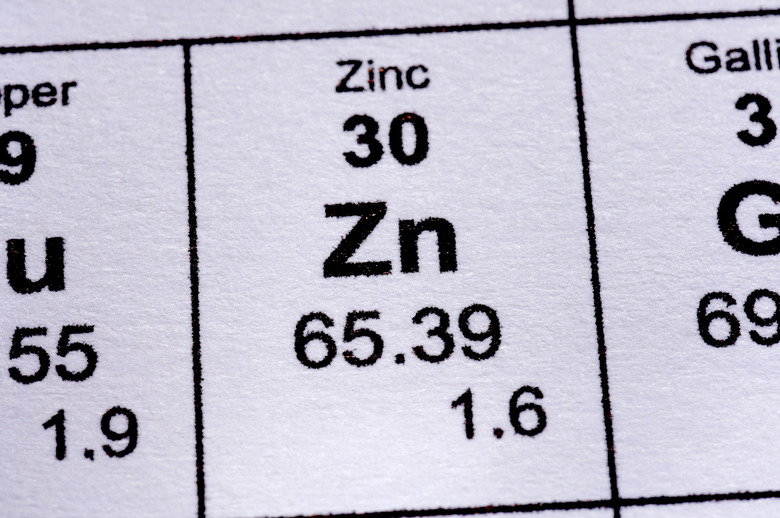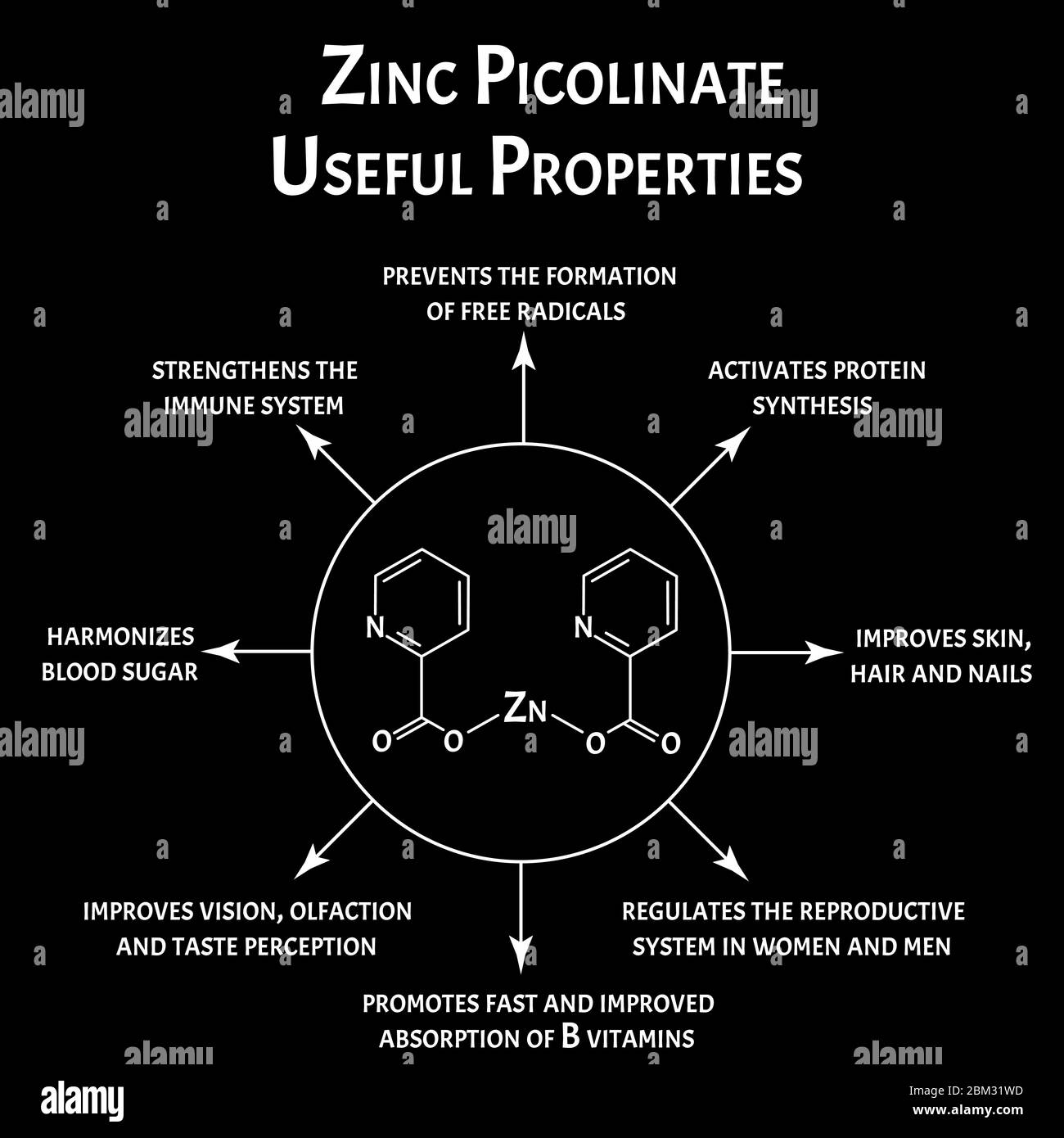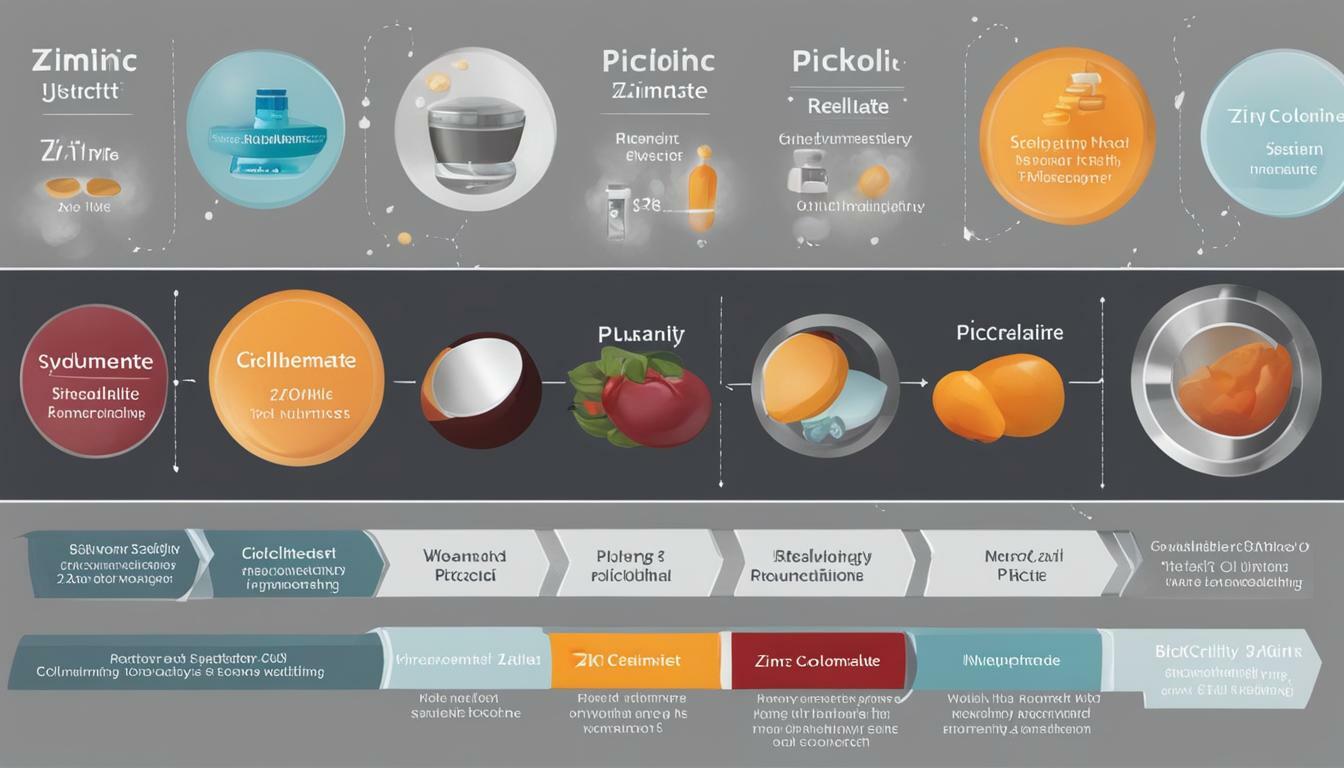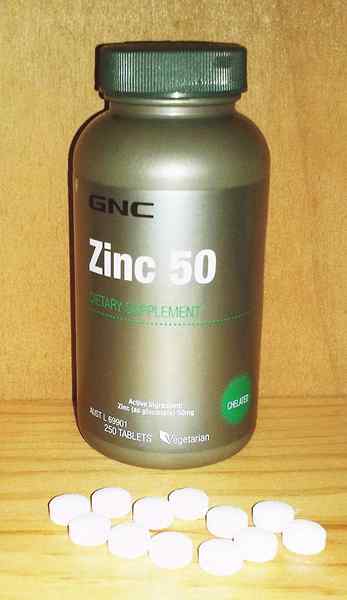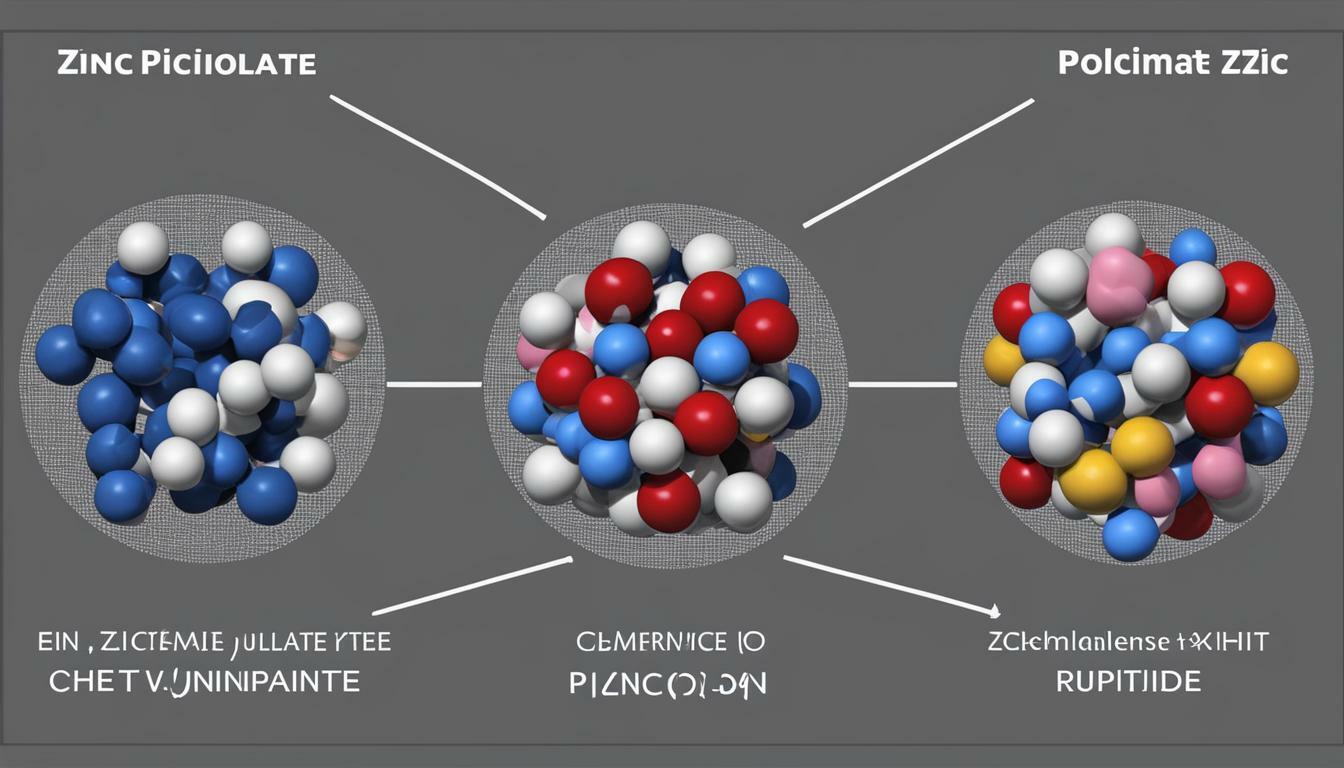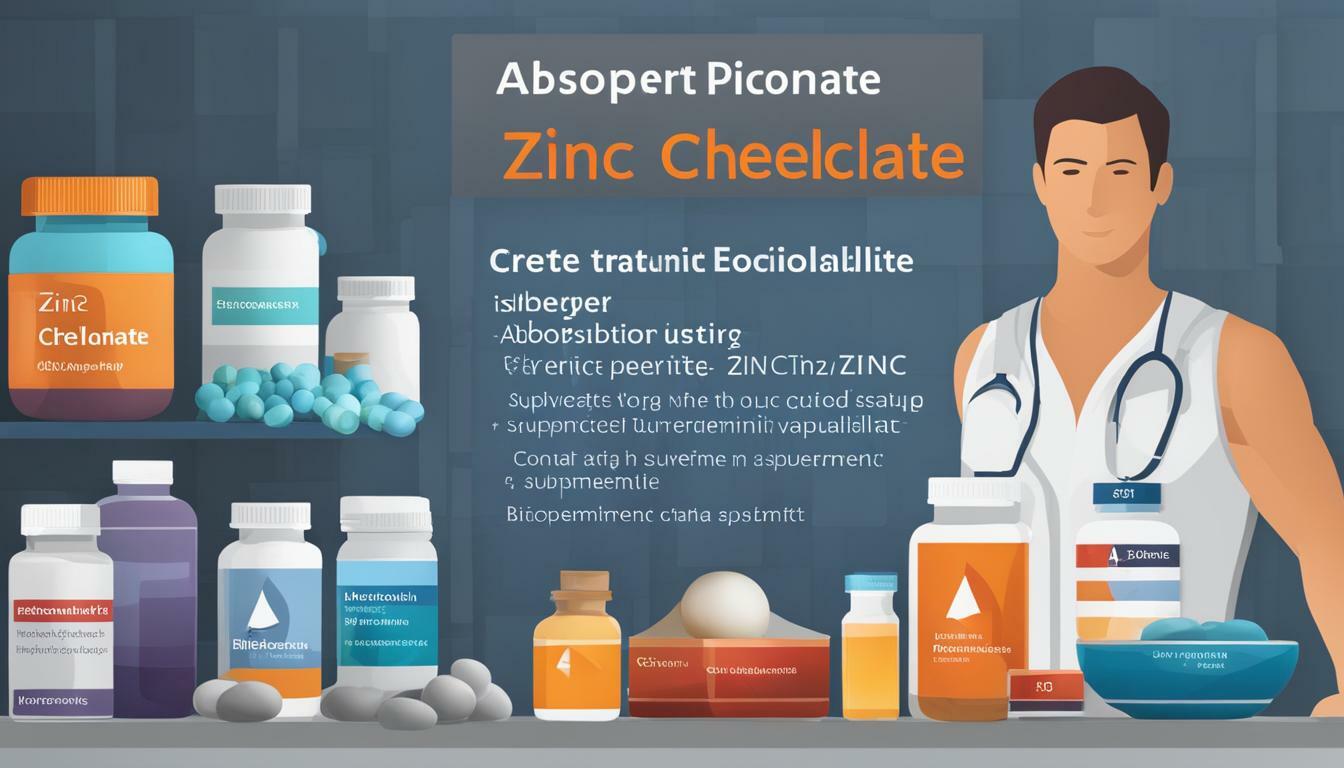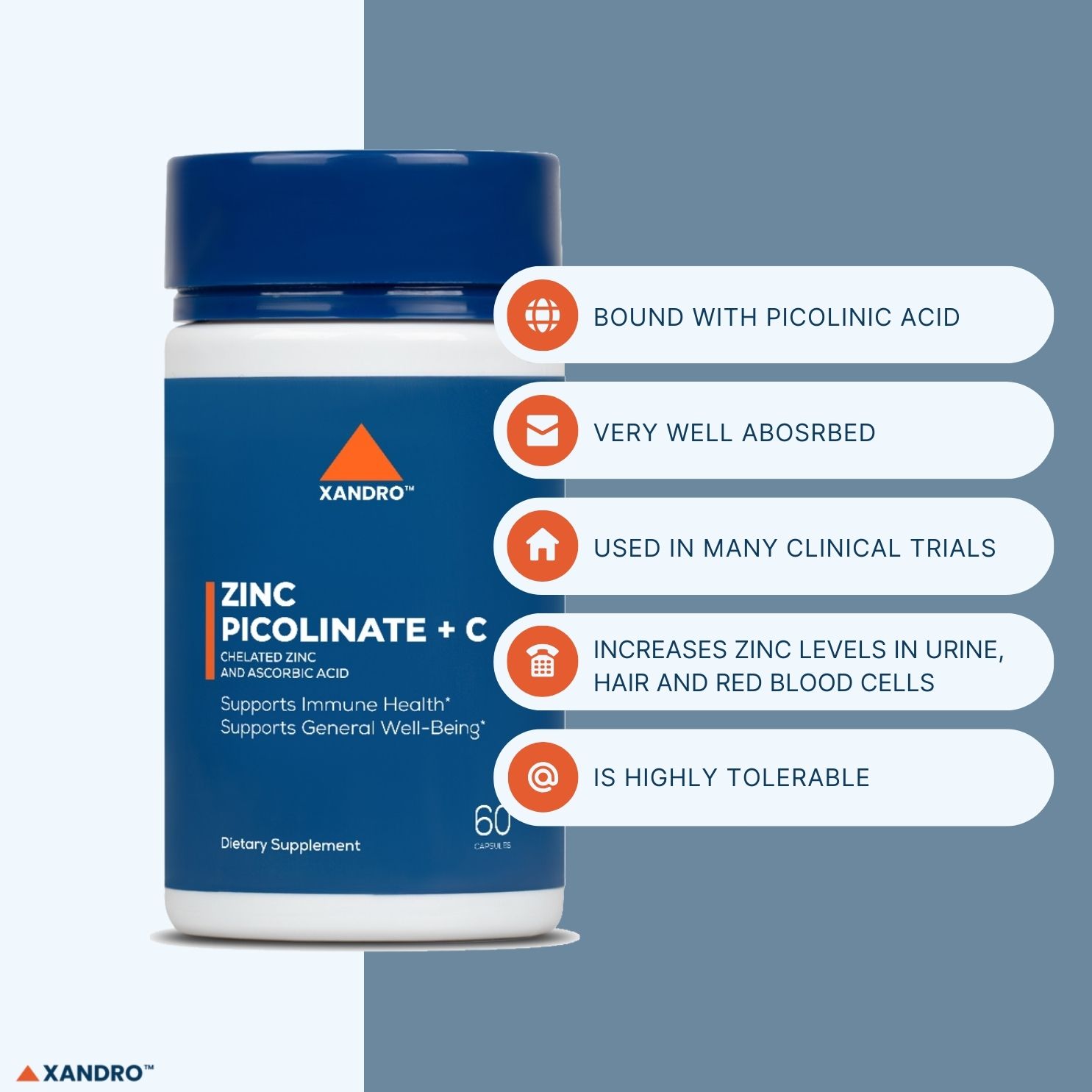Difference Between Zinc And Zinc Picolinate
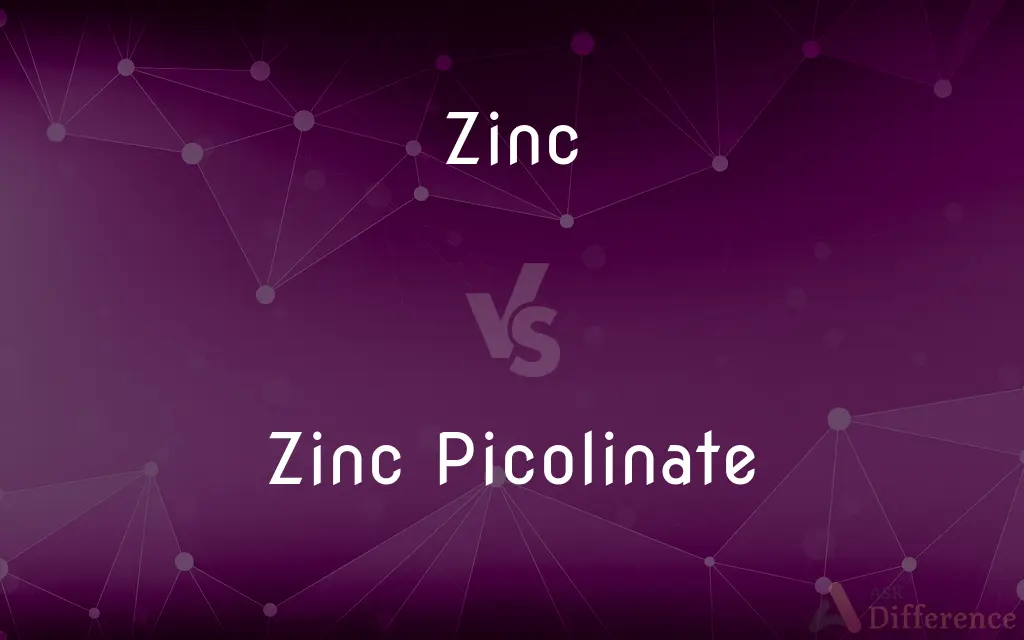
The supplement aisle can be a daunting place, filled with a confusing array of vitamins and minerals, each promising a host of health benefits. Among them, zinc supplements are commonly found, often in various forms. Two prevalent options are zinc and zinc picolinate, leading many consumers to wonder about the true difference and which might be the better choice.
This article will delve into the distinctions between zinc and zinc picolinate, examining their composition, absorption rates, potential benefits, and any associated considerations. Understanding these differences can empower individuals to make informed decisions about their supplementation needs.
What is Zinc?
Zinc is an essential mineral, meaning the body cannot produce it on its own and it must be obtained through diet or supplementation. It plays a crucial role in numerous bodily functions, including immune function, wound healing, DNA synthesis, and cell division. According to the National Institutes of Health (NIH), zinc is also important for growth and development during childhood, adolescence, and pregnancy.
Zinc is naturally found in various foods, such as oysters, red meat, poultry, beans, nuts, and whole grains. However, dietary intake may not always be sufficient to meet individual needs, especially for those with certain medical conditions or dietary restrictions. Therefore, zinc supplements are often considered.
Zinc Supplement Forms
Zinc supplements come in various forms, each with a different compound attached to the zinc molecule. These compounds affect how well the body absorbs the zinc. Common forms of zinc supplements include zinc sulfate, zinc gluconate, zinc citrate, and zinc picolinate.
Zinc sulfate is one of the most common and least expensive forms. Zinc gluconate is often used in lozenges for colds. Zinc citrate is another well-absorbed form that tends to be gentler on the stomach.
What is Zinc Picolinate?
Zinc picolinate is a form of zinc where the zinc is bound to picolinic acid. Picolinic acid is a naturally occurring chelator, meaning it can bind to minerals and facilitate their absorption into the body. This chelation process is thought to enhance the bioavailability of zinc, making it more easily absorbed and utilized.
The theory behind zinc picolinate is that picolinic acid's natural chelating ability makes it a superior choice for zinc supplementation. However, the research on whether zinc picolinate truly has superior absorption compared to other forms of zinc is mixed.
Absorption Rates: The Key Difference
The primary claimed difference between zinc and zinc picolinate lies in their absorption rates. Some studies suggest that zinc picolinate is absorbed more efficiently than other forms of zinc. For example, a study published in *The Journal of the American College of Nutrition* found that zinc picolinate was better absorbed than zinc citrate and zinc gluconate.
However, other studies have not shown significant differences in absorption rates between different zinc forms. The *NIH* acknowledges that more research is needed to definitively determine the superiority of one form over another. Factors like individual physiology, dietary habits, and concurrent medications can all influence zinc absorption, regardless of the form.
Potential Benefits and Uses
Regardless of the form, zinc supplementation can offer various benefits. These include boosting the immune system, reducing the duration and severity of colds, supporting wound healing, and promoting healthy skin. Zinc is also essential for maintaining a healthy sense of taste and smell.
Zinc deficiency can lead to a range of health problems, including impaired immune function, hair loss, skin lesions, and diarrhea. Individuals at risk of zinc deficiency include vegetarians, vegans, people with digestive disorders, and older adults. Supplementation can help address these deficiencies and improve overall health.
Considerations and Potential Side Effects
While zinc is generally safe when taken as directed, excessive intake can lead to side effects. These may include nausea, vomiting, diarrhea, and abdominal cramps. Long-term high doses of zinc can also interfere with copper absorption, leading to copper deficiency.
It is important to consult with a healthcare professional before starting zinc supplementation, especially if you have any underlying medical conditions or are taking other medications. Zinc can interact with certain drugs, such as antibiotics and diuretics.
Choosing the Right Form
The choice between zinc and zinc picolinate ultimately depends on individual preferences, tolerance, and potentially cost considerations. While some studies suggest better absorption of zinc picolinate, the evidence is not conclusive.
If you are unsure which form to choose, consider trying different forms to see which one you tolerate best. Look for supplements that have been third-party tested for purity and potency. Consulting with a healthcare professional or registered dietitian can also provide personalized guidance on zinc supplementation.
In conclusion, while zinc picolinate is marketed as a more bioavailable form of zinc, the scientific evidence supporting its superiority is not definitive. Both zinc and zinc picolinate can be effective supplements, and the best choice depends on individual needs and preferences. Always prioritize a balanced diet rich in zinc-containing foods and consult with a healthcare professional before starting any new supplement regimen.


